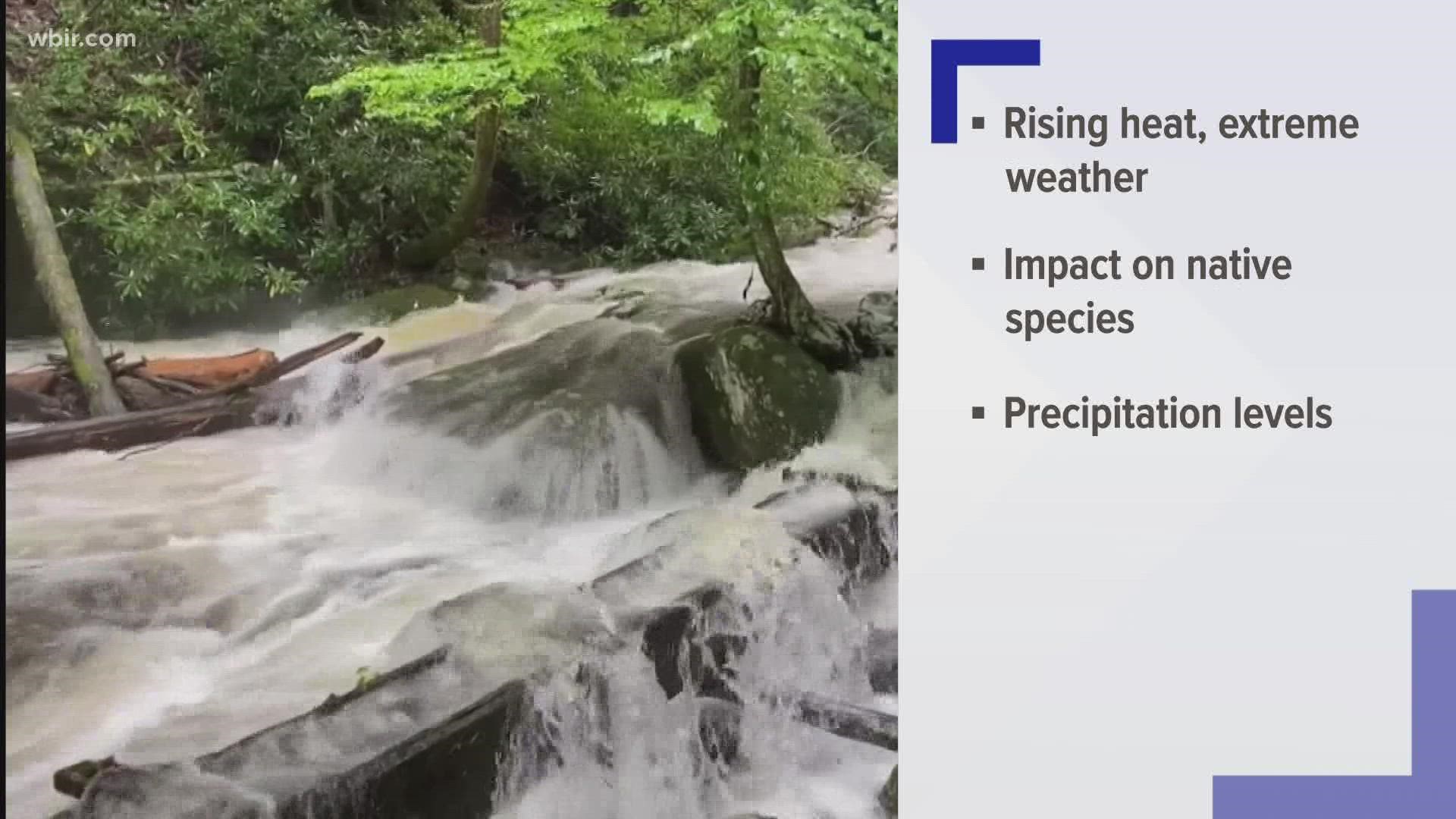Great Smoky Mountains Natl. Park — The impacts of climate change are felt across the world, from wildfires to hurricanes. The Great Smoky Mountains could see changes as a result of climate change processes too.
Researchers across the U.S. are looking into how mountains' environments could be impacted by climate change. One study looked into how weather changes could help species thrive beyond what the environment can sustain.
Andrew Kanes and a team of other researchers highlighted how growing populations of Needle Ants could disrupt the environment in the Great Smoky Mountains. Danial Malagon, a Ph.D. student at Clemson University, also presented the study in early March.
The ant uses venom in a stinger to subdue its prey and has decreased local ant diversity wherever it has been found. They also disrupt mutualistic relationships between ants and plants by decreasing the population of "Aphaenogaster Rudis" ants, which distribute plant seeds across the mountains.
As rainfall becomes more constant in the Great Smoky Mountains, the climate can become more hospitable for Needle Ant populations, according to the study. When those new populations of Needle Ants move in, ecosystems in the Great Smoky Mountains could change.
Their stings can trigger allergic reactions.
The Intergovernmental Panel on Climate Change also reported that rising heat and extreme weather are driving some species to higher latitudes and elevations. Over the winter and spring, the IPCC has released reports highlighting the impact of climate change in mountain regions across the world.
In the report, they said that distributions of plant species have shifted to higher elevations in recent decades, consistent with rising temperatures across most mountain regions. As plants start growing in higher elevations, many food chains and ecosystems in lower elevations could change dramatically since it could be harder for some existing species to find food.
They also said climate-related hazards, such as flash floods and landslides, have contributed to an increase in disasters that affect communities in mountains across the world — including the Great Smoky Mountains.
Changes in water supply due to shifting precipitation patterns or melting snow can also put mountain species at risk of extinction, they said. Species that cannot move into higher elevations may be especially at risk of extinction, they said.
The report said it could lead to "negative consequences for ways of life and cultural identity" in mountain communities.

